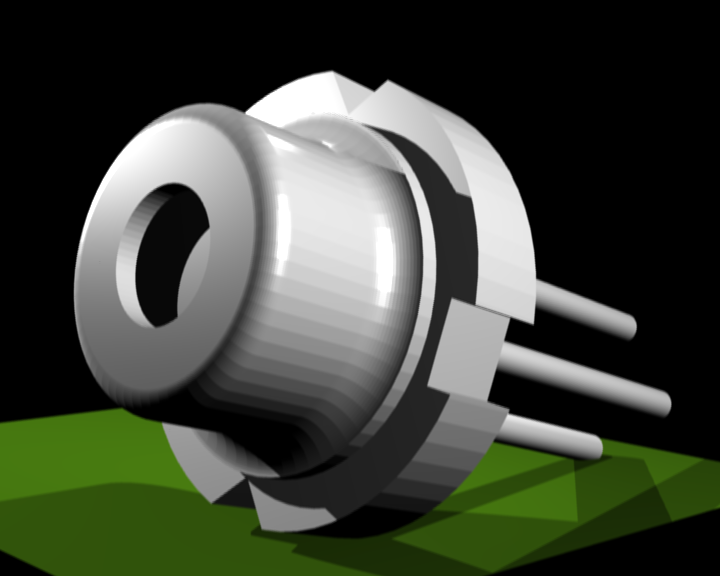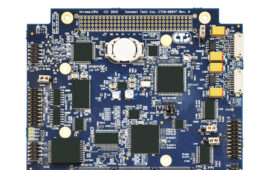Laser diodes are some of the common components of laser technology. They range from sophisticated quantum communication satellites to simple laser pointers; it is like lasers are everywhere. In fact, the manufacturers themselves are so many, with each producing different types of products. The confusion on where to head to when someone is looking for a laser can only be confusing.
But why are lasers highly preferred? Someone may ask? These devices offer a small footprint, top-of-the-line efficiency, and the best price per watt around. They also come in a wide spectrum of types, even from one manufacturer like Excelitas. Since laser light’s industrial applications are many, people consider using them as new systems, or others may choose to replace their gas laser in the product.
One derailing challenge in the choice for a laser is the vast alternatives to select. Even for an engineer, it can be hard to settle on one laser diode for a client. This is especially true when the client doesn’t understand the ideal application requirement for the laser. Fortunately, this article addresses some of the most common issues, which, when one puts into consideration, may influence the right choice.
The article attempts to answer questions like what laser diode is perfect for a given application. Which are some of the most parameters a laser must include, and which one is right when ignored? So, whether the potential buyer is a newbie or a pro in this field, the whole instruction may come a long way to offer useful insight. Nevertheless, below are some of the top issues to check on.
Check on the Application Needs
As aforementioned, the fields of application for laser diodes are wide. This may include the requirement for a device for reconnaissance missions, analytical tools in the medical field, laser diodes for metrological applications, and others like seed diodes for material processing. In essence, every choice will narrow to going for a diode for the desired application.
One of the first considerations one will look at is the choice of the parameters in line with the application requirement. The parameters to include are the coherence length, which is the distance the coherence takes to decay. The spectral resolution is the relationship between wavelength and bandwidth and generally determines the laser’s ability to resolve electromagnetic features.
Bandpass in some sensors for detection of a laser signal uses interference filters to deter ambient light. In the end, it works to keep the wavelength of the laser source in a small transmission range. On the other hand, beam quality will influence the Gaussian beam since it determines how close a beam is to the Gaussian shape. Plus, a host of other components to consider like brilliance, brightness, beam profile, and intensity. These usually influence the level and quality of work the laser diode will handle in real-life applications.
Selecting the Laser Types
The second factor a buyer will want to put into perspective is the laser type. Since we have highlighted above that there are various kinds of lasers outside there, it is only logical to name them now. For instance, when it comes to Excelitas laser, buyers have a long list of options to scan through. Usually, these lasers differ regarding edge-emitter diodes, vertical-cavity, bars, arrays, and surface-emitters. What is more is that these emitters still have different characteristics, which influences the level of operation in the long run. But it is worth noting that users can evaluate to choose the best using the output power relative to the beam quality for the edge-emitters.
Selecting the Material
Someone familiar with laser diodes may understand by now that different companies only cover a given wavelength with their laser. That is because the wavelength is one of the most important things people will check for every application they are looking to fulfill with their device. Furthermore, it is the material these companies use that influences the wavelength ranges. Today, Excelitas laser is considered to be having the best wavelength in the market. People will generally choose between materials like GaAs and GaN when selecting wavelengths and the two are just perfect for normal operations. Others are expensive, and one will make the right choice based on their budget and needs.
Choose the Right Manufacturer
It cannot go without saying how a laser diode manufacturer will influence one’s experience with the device. The market today of laser technology is chock-full of producers, some of which are renowned worldwide for being the best. On the other hand, new-entry producers are only here to confuse buyers, but when someone is already aware of where to head to, the decision is as easy as ABC. Excelitas is one of the renowned and highly-trusted producers and sellers of laser diodes. Their products are of the highest quality and functional in every measure and test subjected to them. Moreover, they have a vast option of lasers for buyers to choose from, perfect for different application needs.
Price
Let us be honest; price is a very crucial consideration when buying something. And when it comes to laser diodes, the case is not any different, and at best, calls for the best of due diligence. These devices are not some toys and are very expensive in their name and use. Some providers like Sony and Lumentum offer more costly lasers. But lasers with 852 or 980 nm in the spectroscopy are less expensive.
The Bottom Line
Ideally, choosing a laser diode will be a matter of personal choice if not a necessity. One excellent way to get the best out of a laser product is to partner with a supplier for continuous supply and use of these products. This is especially useful if one is looking to upgrade from a single device to hundreds of laser diodes at any given time.
It is also very critical for everyone, whether new to this field or is familiar with it, to be aware of what they want. The truth is that the market is full of products, and understanding what one wants will come a long way to make a significant difference. Producers are there to make money, and most of them, if not all, will not care to consider individual needs every time.







